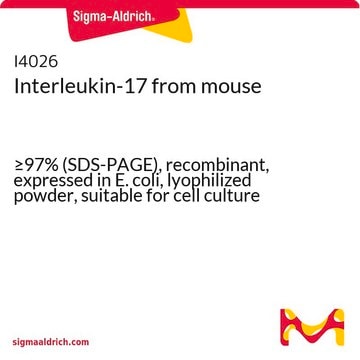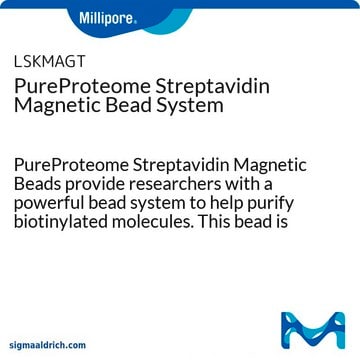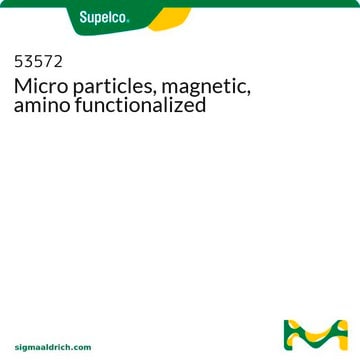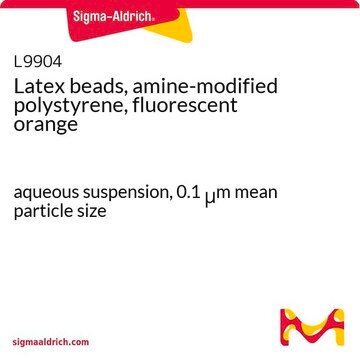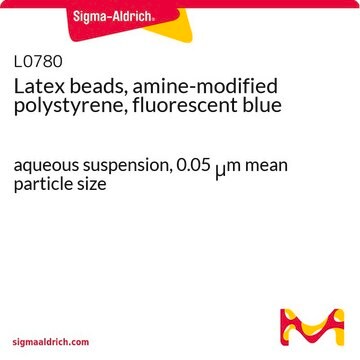I7643
Amine-terminated magnetic particles
50 mg/mL in deionized water
Sign Into View Organizational & Contract Pricing
All Photos(1)
About This Item
Recommended Products
biological source
synthetic (organic)
form
suspension
concentration
50 mg/mL in deionized water
extent of labeling
~12 μmol per mL
technique(s)
affinity chromatography: suitable
matrix
Superparamagnetic iron oxide particles, approx. 1 μm in size
capacity
~10 mg/mL, protein coupling capacity (protein)
suitability
suitable for microbiology
storage temp.
2-8°C
Application
Amine-terminated magnetic particles are buffered in an aqueous solution and used for affinity chromatography, protein chromatography and activated/functionalized matrices. Amine-terminated magnetic particles have been used in the development of methods to detect Mycobacterium tuberculosis and Herpes Simplex Virus-1.
Storage Class Code
11 - Combustible Solids
WGK
WGK 3
Flash Point(F)
Not applicable
Flash Point(C)
Not applicable
Certificates of Analysis (COA)
Search for Certificates of Analysis (COA) by entering the products Lot/Batch Number. Lot and Batch Numbers can be found on a product’s label following the words ‘Lot’ or ‘Batch’.
Already Own This Product?
Find documentation for the products that you have recently purchased in the Document Library.
Customers Also Viewed
Edith Torres-Chavolla et al.
Biosensors & bioelectronics, 26(11), 4614-4618 (2011-05-28)
The present study describes the development of a DNA based biosensor to detect Mycobacterium tuberculosis using thermophilic helicase-dependent isothermal amplification (tHDA) and dextrin coated gold nanoparticles (AuNPs) as electrochemical reporter. The biosensor is composed of gold nanoparticles (AuNPs) and amine-terminated
David A C Thomson et al.
The Analyst, 136(8), 1599-1607 (2011-03-04)
Amplification-free detection of nucleic acids in complex biological samples is an important technology for clinical diagnostics, especially in the case where the detection is quantitative and highly sensitive. Here we present the detection of a synthetic DNA sequence from Herpes
Feng Wang et al.
Bioresource technology, 101(23), 8931-8935 (2010-07-27)
Newly large-pore magnetic mesoporous silica nanoparticles (MMSNPs) with wormhole framework structures were synthesized for the first time by using tetraethyl orthosilicate as the silica source and amine-terminated Jeffamine surfactants as template. Iminodiacerate was attached on these MMSNPs through a silane-coupling
Our team of scientists has experience in all areas of research including Life Science, Material Science, Chemical Synthesis, Chromatography, Analytical and many others.
Contact Technical Service

